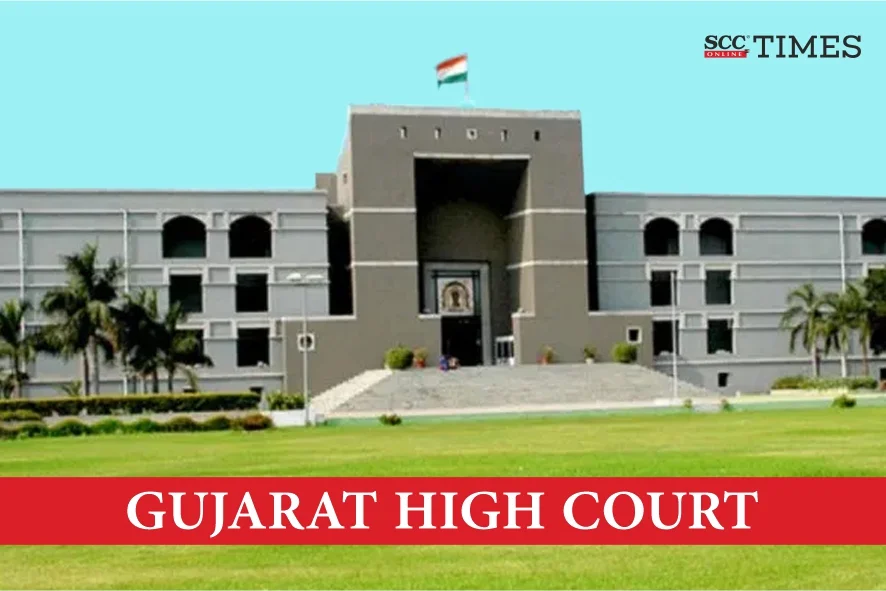Gujarat High Court: A set of two special civil applications were filed against Gujarat Revenue Tribunal’s order for passing two diametrically different/opposite orders more particularly on the aspect of condonation of delay, while hearing appeals against District Collector’s ‘common order’ in tenancy matter. Nikhil S. Kariel*, J. noted that the Chairman, Gujarat Revenue Tribunal had passed two diametrically different orders with regard to a ‘common’ impugned order, hence, directed him to not hear or decide any applications and not to take any administrative decisions till the State would finally take a decision on the aspect that whether he should continue in his position. The Court directed the State to direct him to step down on an administrative leave till the final decision is taken by the State on his conduct.
Background
Out of the two orders under challenge, the Tribunal/ Chairman, in one of the impugned orders, refused to interfere with the order passed by the Deputy Collector on the ground that there was no reason mentioned for the delay of twenty-two years which had occurred in challenging the order passed by the District Collector. On the other hand, in the other impugned order, wherein, the very same order passed by the District Collector was under challenge, the Tribunal opined that that since the order impugned was the order of Mamlatdar and ALT, Khambhat were against the legal position, therefore, being in-effect a nullity, the order could be challenged at any point of time without any reference to the Limitation Act, 1963.
Analysis and Decision
The Court noted that, the delay was condoned by the Tribunal without there being a separate application for condonation of delay. The Court upon noting that two different orders were passed with regard to ‘common’ impugned order under challenge and since it has come to the notice of this Court that the Member/ Chairman concerned has been passing orders repeatedly which are otherwise against the settled propositions of law, which are against the statutes in question and which are bereft of any legal reasoning, the Court called upon the Advocate General to examine such matters.
In the matter at hand, the Court said that ‘condonation of delay’ should have been weighed uniformly by the Tribunal, if the Tribunal did not feel it appropriate to condone the delay in one matter, since sufficient cause was not made out, the same view should have been followed in other order as well, more particularly since the order in question before the Tribunal was a ‘common order’, which also involved similar issue. The Court found the impugned orders to be ‘unsustainable’, hence, they were quashed and set aside. The Court directed the Judicial Member, Tribunal to hear and decide the revision applications within a period of three months from the date of receipt of this order.
The Court also clarified that the legality and validity of the orders are under challenge before this Court and inquiry by the State as to whether the Chairman of the quasi-judicial body like the Tribunal in passing such orders which are contrary to the settled proposition of law, decisions of the Supreme Court, should be permitted to continue on such a senior position.
Further, taking on record Advocate General’s submission that the State is looking into the matter at the highest level, the Court directed the State to instruct the Member/ Chairman not to take up any further matters till the State finally opines whether the orders passed were justifiable or not. The Court called for appropriate decision and sought a response from the State within a period of eight weeks.
[Girijaben v. Shivlalgiri, 2024 SCC OnLine Guj 3508, decided on: 09-09-2024]
Judgment Authored by: Justice Nikhil S. Kariel







